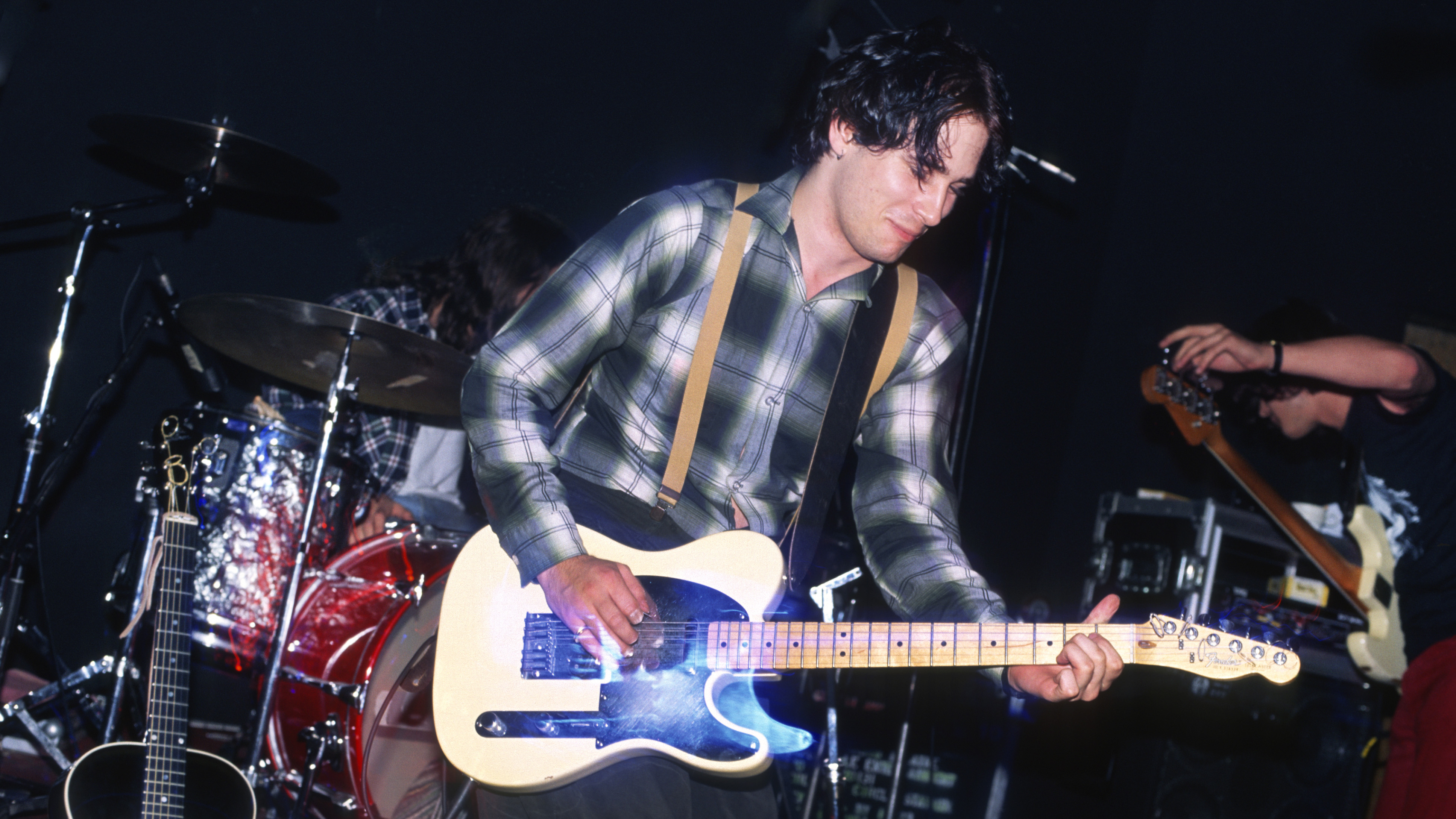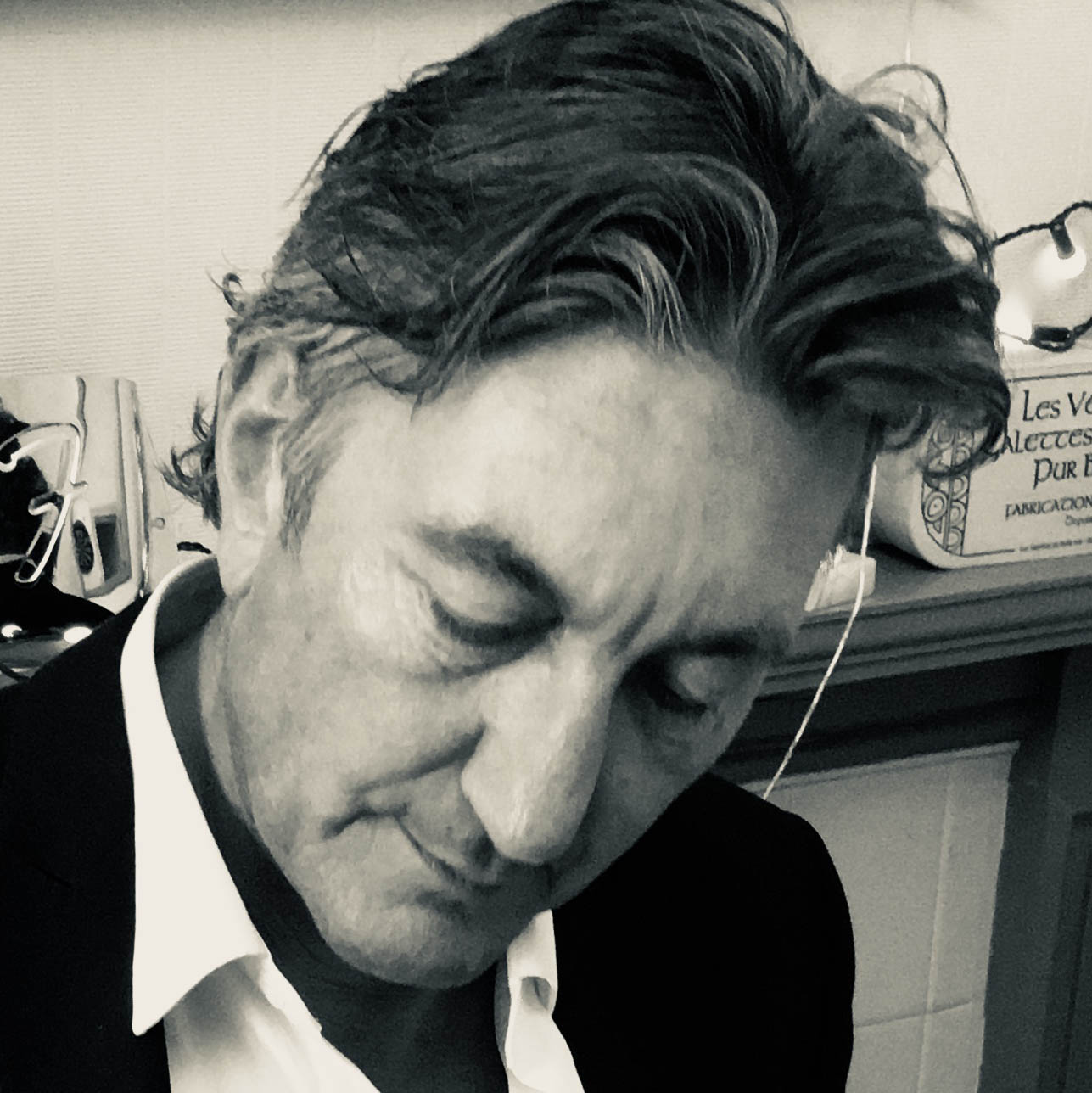An introduction to Jeff Buckley: "I would listen to anything: The Beatles, Bob Dylan, Jimi Hendrix, Joni Mitchell, Judy Garland, Robert Johnson, Thelonious Monk, Bartok, Mahler. And I asked a lot of questions"
From his soaring, unbridled falsetto to his sonic artistry, Jeff Buckley defied conventions and left a catalogue of songs that is timeless and unique

Want all the hottest music and gear news, reviews, deals, features and more, direct to your inbox? Sign up here.
You are now subscribed
Your newsletter sign-up was successful
On the night of 29 May, 1997, six weeks shy of his 31st birthday, Jeff Buckley waded fully clothed into a channel of the Mississippi River in Memphis. He was carefully watched from the bank by his roadie, who had warned him repeatedly about the perilous currents. The roadie looked away momentarily to remove a boombox from the water’s edge and when he looked back, Buckley had disappeared. Six days later, on 4 June, Buckley’s body was discovered floating near the city’s famed Beale Street area, by a passenger on a riverboat called the American Queen.
In the days and weeks that followed, all manner of theories were put forward. Had Buckley ignored his roadie’s warnings and been drunk or stoned when he went into the water? Had the intense pressure of producing a second album as sublime as his first simply been too much? The coroner concluded it was accidental drowning but the theories continued. Whatever the truth, it was a tragic end for an artist who clearly had a great deal left to give.
Jeffrey Scott Buckley was born in Orange County, California in 1966 and was the result of a short-lived relationship between cult folk singer-songwriter Tim Buckley and Mary Gulbert. From the age of four, Jeff was raised by Gulbert and his stepfather, Ron Moorhead.
“My mum would play piano and cello all the time and my stepdad had great musical taste,” recalled Buckley. “I would listen to anything: The Beatles, Bob Dylan, Jimi Hendrix, Joni Mitchell, Judy Garland, Robert Johnson, Thelonious Monk, Bartk, Mahler. And I asked a lot of questions. Learning about music seemed effortless. I guess I must have had natural abilities. Looking back, it felt like instinct.”
At five he picked up his grandmother’s guitar and learnt to play it. By 13, he wrote his first song about a break-up with a girl. After graduating from high school, he studied at the Los Angeles Musicians’ Institute and played in various rock and reggae bands, including a stint with dancehall reggae artist Shinehead. In 1990, he moved to New York and formed the band Gods And Monsters, a hip yet short-lived outfit.
Buckley began a solo career as a singer-songwriter, playing a borrowed Telecaster, in clubs and coffee houses in New York’s East Village and building up a considerable following among audiences, critics and fellow musicians.
He was snapped up by Columbia Records and released the Live At Sin-é EP in November 1993. The EP was well received but the response was nothing compared to the rave reviews bestowed on his full-length debut album Grace, released in 1994. Unlike the EP, Buckley recorded the album with a full band, and collaborated on writing with guitarists Gary Lucas and Michael Tighe, which gave his sound fresh dynamics and textures.
Want all the hottest music and gear news, reviews, deals, features and more, direct to your inbox? Sign up here.
It was a bold and stunning record, full of sweeping choruses and powerful arrangements. Buckley’s brand of eclectic folk was distinctive and unique. As Stephen Thomas Erlewine wrote in a review for AllMusic, “Grace sounds like a Led Zeppelin album written by an ambitious folkie with a fondness for lounge jazz”.
In 1998, a collection of unreleased recordings called Sketches for My Sweetheart the Drunk, was released posthumously. Two live albums appeared in 2000 and 2001, and other compilations and live albums were released.
As always when artists die young, speculation is rife about what might have been – the stellar works they may well have gone on to create. But in his short life, Jeff Buckley forged a collection of songs that enshrined him as an astonishingly innovative and unique talent.
1. Grace – Grace (1994)
There’s an unbridled feel to this title track, which sets the tone for the album with its soaring vocals, intricate guitar patterns and strident, cathartic feel. At its heart, the song is a celebration of life and Buckley’s vocals are emotive and intense as he conveys a sense of wonder for the beauty of the natural world. “There's the moon asking to stay / Long enough for the clouds to fly me away / Oh, it's my time coming / I'm not afraid / Afraid to die”.
Vocally and instrumentally, it’s reminiscent of Radiohead, which is no great surprise as Buckley was an inspiration for Thom Yorke. As Yorke’s friend Dougie Payne of Travis told Far Out magazine: “When [Radiohead] were recording Fake Plastic Trees, they were having trouble with it, and they couldn’t get it to work. So, they went out to see Jeff Buckley play on the tour when it was just him and his electric guitar.”
The band were bowled over by Buckley’s performance. “Radiohead went back to the studio and Thom completely changed the way that he was singing and used that falsetto. You can kind of see the comparisons now. And that says a lot for how inspiring the show was.”
Much of the track’s strength comes from the live performance in the studio. This is a band at the top of its game, honed by relentless touring and capable of taking the music to real heights. This tight unit includes the formidable talents of co-writer Gary Lucas [a guitarist from Captain Beefheart’s band whose instrumental Rise Up To Be formed the basis for Grace], Danish-American bassist Mick Grondahl and drummer Matt Johnson. By the end of the track, Buckley is screaming out the high notes as the whole sonic bombast builds towards a resolution.
2. Lover You Should’ve Come Over – Grace (1994)
The pain and longing of unrequited love is the focus of this hauntingly beautiful ballad written with Gary Lucas, which is built around Buckley’s intricate fingerpicking. There’s a dreamy, melancholic feel to the track, which features a sublime string arrangement from Karl Hans Berger.
Buckley’s performance here is raw and intimate and the song really showcases the emotive feel of his vocals. It has become one of his most enduring and beloved compositions.
“It’s never over, my kingdom for a kiss upon her shoulder / It’s never over, all my riches for her smiles when I slept so soft against her / It’s never over, all my blood for the sweetness of her laughter / It’s never over, she’s the tear that hangs inside my soul forever.”
The song runs to almost seven minutes, but it’s so entrancing that you barely notice. Every syllable from Buckley sounds heartfelt and true. As ever, the chords and melodies veer to the unexpected. From the mournful organ in the intro through to the squalling jagged guitar and drum flams at the outro, this is perfection.
3. Last Goodbye – Grace (1994)
The second single from the album, after the title track, and a haunting ballad that became a belated hit in 1995. Here, Buckley mourns the death of a relationship and focuses on the pain of letting go. The chorus is soaring and anthemic, while tasteful piano and string parts add depth and texture to the song.
Even from his early solo coffee house gigs, Buckley chose to play an electric rather than an acoustic, a decision that added to his distinctively different style. Buckley mainly played a borrowed 1983 Fender Telecaster and a Rickenbacker 360/12, but also used several other guitars, including a black Gibson Les Paul Custom and a 1967 Guild F-50 acoustic. When on tour with his band, he used Fender amps for a clean sound and Mesa Boogie amps for overdriven tones.
4. Mojo Pin – Grace (1994)
Another song written with Gary Lucas (his instrumental is called And You Will) and dating back to the Live at Sin-é EP, the opening track from Grace and one that showcases his eclectic blend of folk, rock and soul.
High guitar note swells and harmonics enhance the beautifully haunting intro before Buckly’s plaintive falsetto enters the mix. Sparse, fingerpicked guitar follows, forming a warm backdrop for the first few vocal lines: “I’m lying in my bed / The blanket is warm / This body will never be safe from harm / Still feel your hair, black ribbons of coal".
The lyrical premise of the song focuses on the ‘mojo pin’ in question being pulled from his heart, leaving him hurt and exposed. It’s a restrained, tasteful arrangement, with smatterings of toms, bass and cyclical guitar picking. The whole ensemble continues to ebb and flow while Buckley’s warm vocal falsetto glides and meanders across the whole.
5. Hallelujah – Grace (1994)
Written by Leonard Cohen and released on his 1984 album Various Positions, this track has been covered by artists such as John Cale, Rufus Wainwright, KD Laing, Myles Kennedy (with Jeff's Telecaster) and Regina Spektor. But it was Jeff Buckley’s version that has really seared itself into the global consciousness.
It’s a hauntingly beautiful cover, impeccably realised by Buckley. In his hands, the song attains a real fluidity, ebbing and flowing, quickening and slowing. Much of its power lies in its minimalism and sparsity. The only accompaniment is Buckley’s guitar – his Telecaster – and this really enhances his breathtakingly emotive delivery.
His version has been perceived as sexual and Buckley once said it was "a hallelujah to the orgasm". But at its core the song is a soulful exploration of faith, love and what it means to be human. As April Johnson wrote in Singersroom.com in 2023, “Buckley’s voice is both powerful and vulnerable, conveying a sense of longing and spiritual yearning that is both moving and inspirational.”
Hallelujah is one of Buckley’s most iconic and enduring tracks and has become a classic song in its own right. For many, it is the definitive version of Cohen’s bitter lament about love and loss.

Neil Crossley is a freelance writer and editor whose work has appeared in publications such as The Guardian, The Times, The Independent and the FT. Neil is also a singer-songwriter, fronts the band Furlined and was a member of International Blue, a ‘pop croon collaboration’ produced by Tony Visconti.








